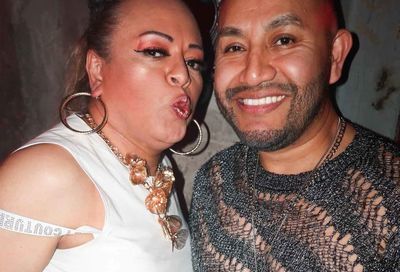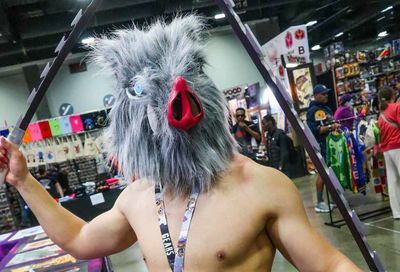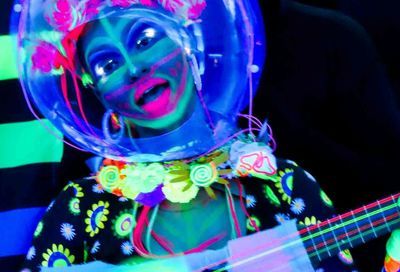Singular Sensation
Commentary: In Exile
Couplehood is such a smug thing that when it ends, one of the hardest parts is telling the people you know. My boyfriend Carl and I are, for lack of a better word, separating after about two-and-a-half years of rigorous togetherness. We may get back together, we may not. For now, I’ve moved out — back to Brooklyn — and we’re speaking occasionally. I won’t get into the tawdry details. Let’s just say there were issues that were making it impossible.
My friends have been finding out piecemeal. I’m amazed how reluctant I am to tell them. One reason is that virtually everyone I know — my terminally single friends — all seem to have just met their soul mates in the past few weeks. My friend Wil, unattached virtually the entire time we’ve known each other, is suddenly seriously dating some impossibly wonderful 21-year-old. Another friend of mine, single for years, just met a guy who built a cabin in the woods with his bare hands, and it looks like it’s going to work out. They’ll be able to go up to the cabin together and toast marshmallows.
This is not just in my head — single people all around me are pairing like agitated molecules.
Surprisingly, I find what’s going on between Carl and me embarrassing. I do not feel like Carrie Bradshaw, poring over the details in public with beleaguered good-nature. Depression is the overriding emotion that accompanies this whole debacle, followed by fear of being alone. But third place goes to embarrassment. It’s my big, dark secret: I don’t want people to know that my relationship is falling apart.
It’s embarrassing because Carl and I were working, even while none of the other couples we knew were. For nearly three years, we watched others pair up and quickly dissolve from our cozy domestic perch, a one-bedroom whose walls felt like a barrier against the turmoil and chaos of the uncoupled existence out on the street. We’d figured out something that everyone else seemed perpetually tripped up by.
When Carl and I first started dating, most people thought it wouldn’t last (including Carl, by his own account). As an editor at the glossy magazine we both worked at, he resided in a totally different sphere than I did, one that involved fancy social events and the occasional appearance on cable news. I was a fact-checker, the lowest peon position you can find at a weekly publication. And I was recent to the city. I had few friends, and was still learning to navigate the many complicated social worlds of New York. Carl was well-known and had them down pat: the gallery scene, the cocktail circuit, the industry parties.
Since we were working together, we didn’t tell anyone that we were dating for a while, just in case the relationship miscarried. But people soon found out anyway, and the longer we were together, the more I began to feel as if we were some sort of low-grade celebrities. Gossip spread. People began to ask Carl if he was ”dating a fact-checker.” The wide disparity between our positions at the magazine gave our relationship the whiff of scandal. It was thrilling.
This never would have been sustainable, though. Eventually, the excitement of being such different people wore off, and morphed into massive insecurity on my part, an inferiority complex that I took out on Carl. We’d go to a glitzy social gathering, and I’d get drunk and cause a scene because he was getting too much attention. I remember one party in particular where Anthony Haden-Guest addressed Carl by his first name. I pounded three big glasses of whiskey at the open bar and noisily stormed out.
We weathered this period with difficulty. In New York, especially in the media world, status often seems to be everything when it comes to interactions with people. At some especially exclusive parties, Carl would have to argue with the bouncer to convince them to let me in with him. This was humiliating, and I often thought of blowing town because of it. But for some reason, we stuck it out.
When I eventually shed the fact-checker stigma by getting a job as an editor myself, these problems largely became moot, and for the first time in our relationship, I felt as if we were equals. Which is where the feeling of embarrassment comes in. Partly it comes from the fact that our relationship had come to be seen as almost indestructible, especially after we’d surmounted so many other hurdles, and especially in the world of gay men where most relationships may as well be measured in dog years. I’d gotten off on the idea that others were jealous of us for surviving despite these odds. You can insert some obvious sentiment about pride after the fall here.
But now, as I think about it, I realize that I’m also just embarrassed by the way I’d come to think of us as well. As our relationship matured over the years, I bought into the idea that it was indestructible. I assumed I could make anything work, no matter how many cracks wormed their way through the foundation, because I was somehow smarter and savvier. A few years ago, I never would have been so able to delude myself. I guess getting older doesn’t always mean getting wiser.
Will Doig writes from his exile in New York City. He can be reached at wdoig@metroweekly.com.
Support Metro Weekly’s Journalism
These are challenging times for news organizations. And yet it’s crucial we stay active and provide vital resources and information to both our local readers and the world. So won’t you please take a moment and consider supporting Metro Weekly with a membership? For as little as $5 a month, you can help ensure Metro Weekly magazine and MetroWeekly.com remain free, viable resources as we provide the best, most diverse, culturally-resonant LGBTQ coverage in both the D.C. region and around the world. Memberships come with exclusive perks and discounts, your own personal digital delivery of each week’s magazine (and an archive), access to our Member's Lounge when it launches this fall, and exclusive members-only items like Metro Weekly Membership Mugs and Tote Bags! Check out all our membership levels here and please join us today!




















